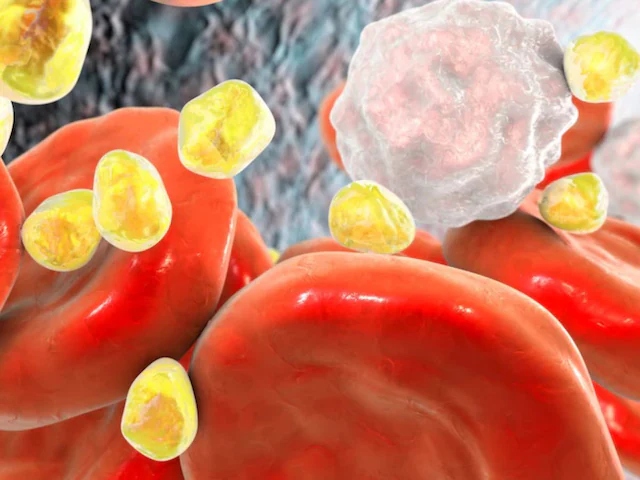High cholesterol is one of the widespread health concerns affecting a significant number of people. Cholesterol is crucial for building healthy cells, but having too much of it can up your risk of heart disease. In most instances, high cholesterol acts as a silent threat. It often goes unnoticed, as it doesn’t manifest symptoms at the early stage. In many cases, individuals remain unaware of their high cholesterol levels until they experience severe heart complications.
High cholesterol levels can also sometimes cause noticeable changes in your skin. The first sign that you have high cholesterol might appear as unusual bumps, soft yellowish patches on your skin, or odd discolouration on your arms and legs. Below are some signs that hint you have high cholesterol levels.
Pale or Yellowish Tint
Excessive cholesterol levels could manifest as a pale or yellowish tint to your skin. A change in skin tone may suggest that cholesterol is impacting both blood circulation and overall skin health.
Uncontrolled Formation of Pimples And Acne
High cholesterol levels cause skin problems like acne and pimples. Too much cholesterol can cause inflammation and block pores, leading to acne and pimples on your face.
Heat Rash or Sweat Rash
Rising cholesterol levels can trigger heat rash on the face. But some people might mistake it for a regular sweat rash and ignore it. This oversight can lead to harmful results.
Itchy Face
If you have itching on your face that lasts a long time and doesn’t go away, it becomes important to get your cholesterol levels checked and see a doctor. Too much itching and redness on your face could mean you have high cholesterol.
Psoriasis
Excessive cholesterol levels can result in blockages within the small blood vessels, known as capillaries. This impedes the skin’s oxygen supply, causing a change in skin colour on the surface. This condition is medically referred to as psoriasis.
Cholesterol embolism
Sometimes, high cholesterol levels can cause a serious condition called cholesterol embolism. In this situation, cholesterol crystals break and get stuck in the veins, blocking them and causing problems like skin ulcers.
Ulcers in Feet
Individuals with high cholesterol may face persistent ulcers. This happens because the ulcers lack adequate blood supply for healing and increase your cholesterol levels.


